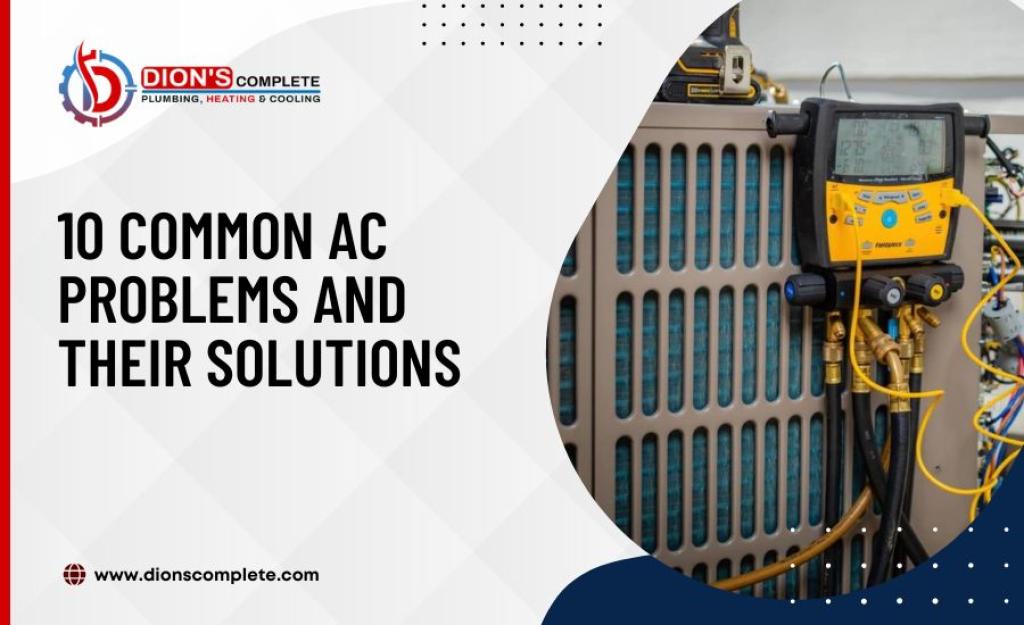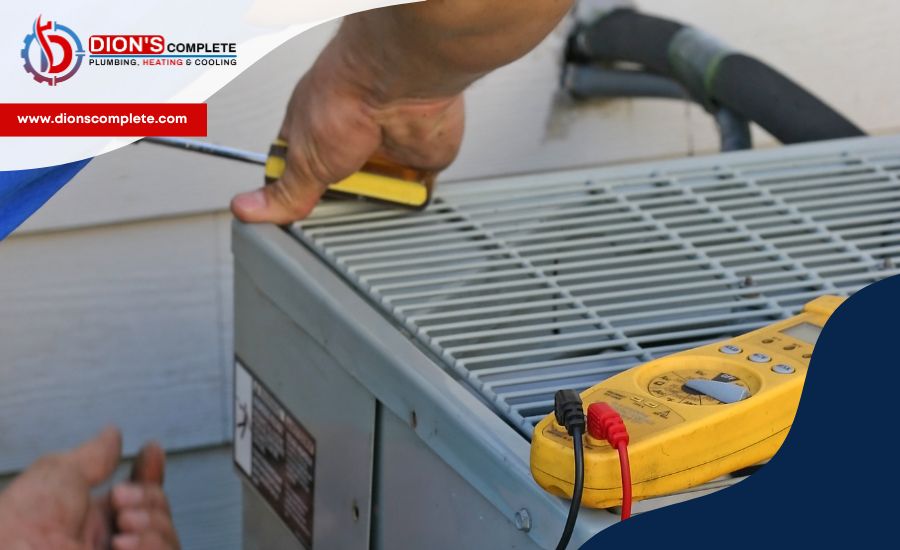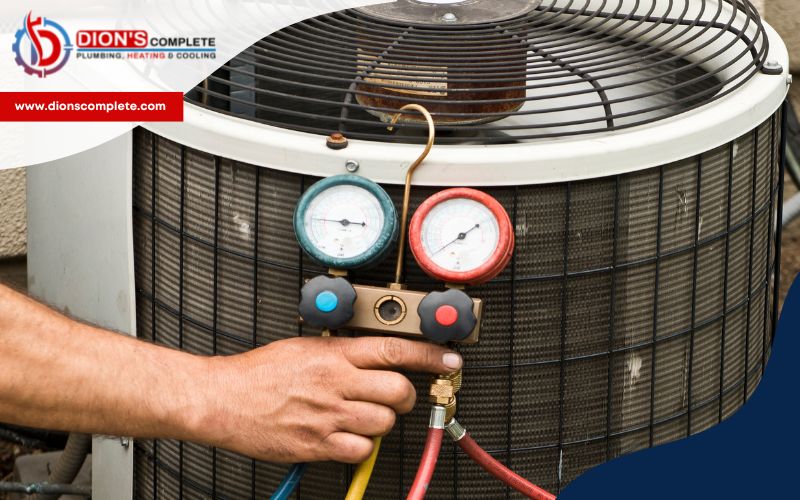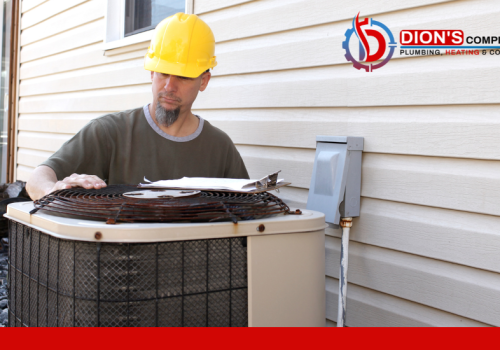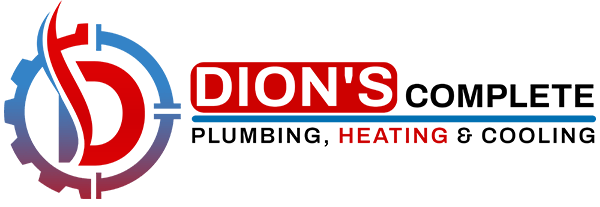As summer approaches, it's essential to have a properly functioning air conditioner in your home or office. But like any other appliance, air conditioners can develop problems, resulting in reduced efficiency or complete breakdown. In this article, we'll discuss the ten most Common AC problems and their solutions to help you keep your air conditioner working efficiently.
Air conditioning problems can be frustrating, especially when they occur during the hot summer months. However, many AC problems are simple and easy to fix. By understanding the most common issues, you can quickly diagnose and resolve any problems that arise. In this article, we'll provide solutions to ten common AC problems.
AC not turning on
If your AC doesn't turn on, there could be several reasons for it. Here are the most common causes:
Thermostat problems
The thermostat controls your AC's temperature, and if it's not working correctly, the AC won't turn on. Ensure that the thermostat is set to "cool" and that the temperature is set correctly. If that doesn't solve the problem, replace the thermostat.
Tripped circuit breaker
A tripped circuit breaker could be the reason why your AC isn't turning on. Go to your electrical panel and check if the breaker for your AC is tripped. If it is, switch it off and then on again.
Blown fuse
If the circuit breaker isn't tripped, check the fuse. If it's blown, replace it with a new one.
Faulty wiring
Faulty wiring could also be the reason why your AC isn't turning on. If you suspect this to be the case, it's best to call a professional electrician to inspect your AC.
Airflow problems
Insufficient airflow can reduce your AC's efficiency and cooling power. Here are some airflow problems you might encounter:
Dirty air filter
A dirty air filter can restrict airflow, making it difficult for your AC to circulate air. Check the air filter and replace it if it's dirty.
Blocked or leaky ducts
Blocked or leaky ducts can also reduce your AC's efficiency. Inspect your ducts and remove any obstructions. If there are any leaks, have them repaired immediately.
Damaged blower fan
A damaged blower fan can also reduce your AC's airflow. If you hear strange noises coming from your AC, turn it off immediately and call a professional HVAC technician to inspect and repair the blower fan.
Refrigerant leaks are Common AC Problems
Refrigerant leaks can cause your AC to blow warm air or not cool at all. Here's how to identify refrigerant leaks:
- Ice buildup on the evaporator coils
- Hissing sounds coming from the AC
- Increased energy bills
If you suspect a refrigerant leak, call a professional technician to inspect and repair your AC.
Frozen evaporator coils are Common AC Problems
Frozen evaporator coils can also reduce your AC's cooling power. Here's how to identify frozen evaporator coils:
- Reduced airflow
- Moisture buildup on the AC
- Ice buildup on the evaporator coils
If you suspect frozen evaporator coils, turn off your AC and let it thaw. Once it's thawed, check the air filter and make sure it's clean. If the problem persists, it's best to call a professional technician to inspect and repair your AC.
Dirty condenser coils are Common AC Problems
Dirty condenser coils can also reduce your AC's efficiency. Here's how to identify dirty condenser coils:
- Reduced airflow
- Increased energy bills
- Warm air blowing from the AC
To clean the condenser coils, turn off your AC and remove any debris or dirt from the coils using a soft brush or a vacuum cleaner. If the problem persists, call a professional technician to inspect and repair your AC. Additionally, you can also learn how to troubleshoot common air conditioning problems with our AC troubleshooting tips you can try at home in our previous article.
Strange noises are also very common
Strange noises coming from your AC could indicate a problem. Here are some common noises and their causes:
- Squealing noises - could be due to a damaged belt or bearings
- Rattling noises - could be due to loose parts or debris
- Hissing noises - could indicate a refrigerant leak
- Grinding noises - could be due to a damaged motor or bearings
If you hear any strange noises, turn off your AC and call a professional technician to inspect and repair it.
Foul smells are very common
Foul smells coming from your AC could indicate mold or bacterial growth. Here's how to get rid of the smell:
- Replace the air filter
- Clean the evaporator coils and condenser coils
- Install UV lights to kill bacteria and mold
If the problem persists, call a professional technician to inspect and repair your AC.
Electrical issues is the most common problem
Electrical issues could cause your AC to malfunction. Here are some common electrical problems:
- Faulty wiring
- Loose connections
- Burnt-out capacitors
- Broken motors
If you suspect any electrical issues, call a professional technician to inspect and repair your AC.
AC unit constantly running
If your AC unit is constantly running, it could be due to:
- A dirty air filter
- Leaky ducts
- Refrigerant leaks
- Improperly sized AC unit
Check the air filter and ducts and repair any leaks. If the problem persists, call a professional technician to inspect and repair your AC.
Common AC Problems can be fixed if they are discovered right away
By understanding the ten most common AC problems and their solutions, you can keep your AC working efficiently and avoid costly repairs. Regular maintenance and inspection can also prevent these problems from occurring in the first place.
If you experience any of the issues discussed in this article, contact DION'S COMPLETE Plumbing, Heating & Cooling in Brighton, MI at (734) 352-9736. We can help you with any of your AC needs.
FAQs about Common AC Problems
1. How often should I replace my air filter?
It's recommended to replace your air filter every 1-3 months, depending on usage.
2. Can I clean my AC coils myself?
Yes, you can clean your AC coils yourself, but it's recommended to call a professional technician for a thorough cleaning.
3. How do I know if my AC unit is properly sized?
A professional technician can perform a load calculation to determine the appropriate AC unit size for your home or office.
4. How often should I have my AC unit serviced?
It's recommended to have your AC unit serviced at least once a year to ensure its efficiency and longevity.
5. Can I use my AC unit if it's low on refrigerant?
No, it's not recommended to use your AC unit if it's low on refrigerant. Call a professional technician to inspect and repair your AC.

